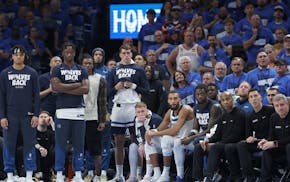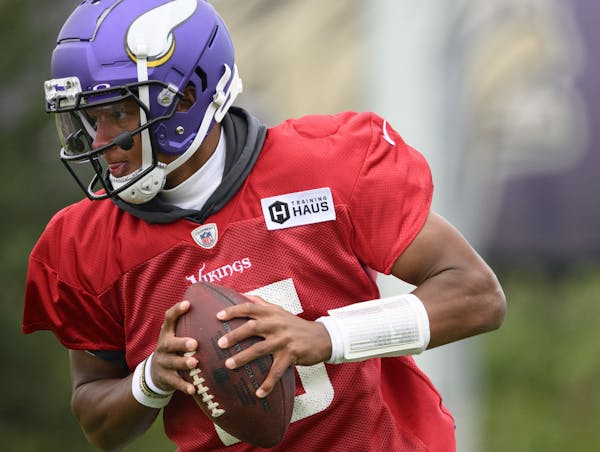Culture is hard to define, which is probably why most of the people who use the word don't even try.
It's one of those cross-discipline buzzwords or phrases — like synergy, best practices, new normal or deep dive — that mean so little it can be used anywhere and be applied to anything. It's the beige paint of the English language. In isolation it's hard to notice; made ubiquitous, it's as annoying as Mozart dumbed down to Muzak.
Like art and fraud, you know culture when you see it, and we saw it in action over the last two weeks with the Minnesota Vikings.
In rapid succession, they defeated their primary rivals on the road while losing their franchise quarterback for the season; cried in the locker room; rallied around a rookie replacement; traded for a veteran backup; wore T-shirts in pregame warmups honoring their franchise quarterback; and rallied behind their veteran backup to win their fourth consecutive game without their superstar, in wild and inspiring fashion.
Despite a variety of important injuries, they have not whined or made excuses. As someone who has worked a thousand locker rooms, what stands out to me the most is that they haven't relied on the familiar crutch of the professional athlete: the arrogance of defiance.
They haven't motivated themselves by finding "critics" who picked against their improbable victories. Instead, we saw grown men cry for their leader on one Sunday, and revel in their ability to win without him the next.
The NFL is a cold, brutal and violent league. Vikings coach Kevin O'Connell and General Manager Kwesi Adofo-Mensah have created an environment that allows their players to be human and humane. They lead not through fear or intimidation but through relationships.
Sunday in Atlanta, after backup quarterback Joshua Dobbs engineered a series of comebacks culminating in a game-winning, last-minute touchdown pass to reserve receiver Brandon Powell, O'Connell hugged Dobbs for a long time on the sideline, speaking into his ear. The coaching of O'Connell and his staff prepared Dobbs for success, but O'Connell knew that Dobbs' improvisational brilliance on Sunday gave his team an important victory.
Athletes are acutely aware of insincerity. O'Connell has been in charge for a season and a half now. In his job, that means he has played a part in releasing and demoting players, ending careers and dreams. He has yet to hear a legitimate, public complaint about his management style, while players who arrive from other organizations — including guard Dalton Risner, Powell and Dobbs — have raved about the atmosphere at TCO Performance Center.
Sunday morning at Mercedes-Benz Stadium, Vikings players wore t-shirts bearing the face of Kirk Cousins, their injured franchise quarterback, who is out for the year with an Achilles tendon injury.
Under different leadership, that might have felt hokey, or forced. With this group, it was obviously real.
The Vikings are now 18-8 in the regular season under O'Connell, despite obvious roster weaknesses. They have won four straight, all without their best player, Justin Jefferson, who could return from his hamstring injury in the next week or two.
These Vikings don't need to invent enemies to motivate themselves. They have transitioned from the increasingly likable Cousins to the eminently likable Hall and Dobbs to become one of the best stories in the league.
Credit goes to Adolfo-Mensah and the players. Credit should also go to owner Zygi Wilf and his team. Most of the credit should go to O'Connell for creating an atmosphere emphasizing both empathy and mental toughness.
Contrary to a century of tough-guy coaches who thought rubbing dirt on an injury and denying water breaks were good ideas, empathy and toughness are not mutually exclusive.
I'm still not sure how to define sports culture, but an entire roster wearing t-shirts with the face of their fallen starter before winning with a quarterback who didn't know the names of all of his teammates is a pretty good illustration.
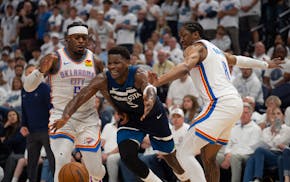
Souhan: Edwards and Randle flop in the Timberwolves' biggest game of the season
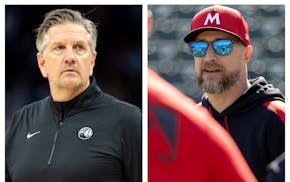
Souhan: Twins' Baldelli and Timberwolves' Finch have a lot in common. They ought to talk.
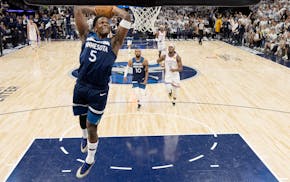
Souhan: Edwards shows clearly the worth of basketball's key skill — jump shooting
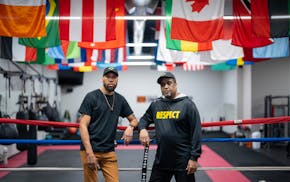
Minnesota sports stars reflect on George Floyd's legacy
